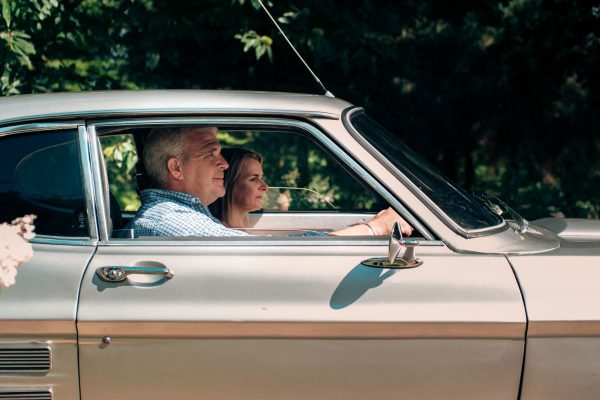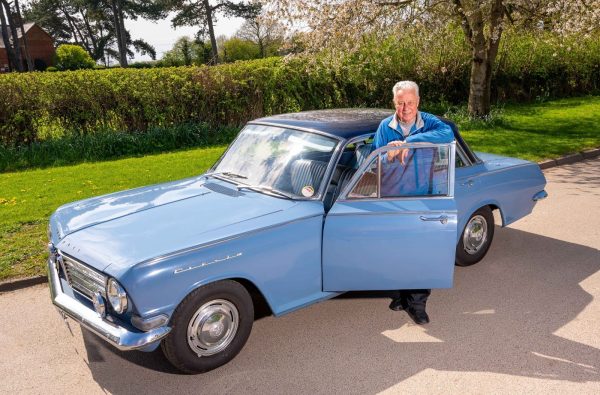An exploration into classic car owners

While modern cars are often more economical and cleaner to run, millions of classic cars are still on the road thanks to the dedication and enthusiasm of their owners. But what is it about owning and driving a classic car that creates this passion? To find out, we have surveyed existing Adrian Flux classic car insurance customers to learn about their passion, how the cost of living crisis is impacting them and how they view classic car ownership.
Classics are about more than money
Of the classic car owners surveyed, around 16% percent said they had no plans to ever sell under any circumstances. 22% said the only exception would be if their health was at risk.
This level of dedication has been put to the test recently, with the cost of living crisis forcing many people in the UK to reassess their budgets and cut back on luxuries. Yet the devotion to owning a classic car prevails, with 17% of owners still spending more than 10% of their income on car maintenance. This is a particularly significant portion of income when you consider that, on average, people spend 16% on their food bill.
For so many drivers to be investing in their classic cars demonstrates the depth of their passion for their own vehicles. But why do they do it?
Classics are more than a hobby

For almost a quarter of respondents, the biggest motivation for owning a classic car is to restore it. By providing care and regular maintenance, iconic cars from the 60s and 70s have not become lost to time and are still active and on the roads today.
17% of the policyholders surveyed said their motivation to own a classic car was based on nostalgia and personal recollection. Perhaps they now own the car their parents had or finally got the opportunity to own their dream car from childhood. With such strong sentimental connections to family members and the past, it becomes clear why classic car owners are so attached to their car of choice.
Perhaps unsurprisingly, most enjoyment from owning a classic car is not in the restoration, but the chance to get out on the roads. 26% said that the part of classic ownership they enjoy the most is the driving itself.
Cars were made differently back then

According to the survey, the most popular era for classic cars was the 1960s, with 33% choosing this era as their favourite. The 70s and 80s were the next most popular, with cars from the 2000s least popular with our respondents.
The head-turning appeal of a classic is a major benefit for owners. Fashion shifts regularly and the design of many cars can become outdated, but classics are considered to have something unique about their design which makes them timeless. Nearly a quarter of those surveyed love the character and personality of classic cars.
The appeal of classic vehicles extends beyond aesthetics to their performance and sound. While newer cars may benefit from improved technology and enhanced mechanics, 21% of respondents claimed it was the simplicity of classic car mechanics that they loved so much. With this in mind, it’s not surprising that nearly half of the surveyed policyholders believe that there are no modern cars with the capability to be crowned a classic.
Case study 1: Mick and Midge Harris

After discovering a passion for car restoration during high school metalwork classes in the 1960s, Mick Harris was inspired by an abandoned car left in a barn by his home, buying the vehicle for £60 in April 1978.
With no chrome or documents, the first challenge was to try and identify the car’s make and model.
Eventually Mick and his wife, Midge, identified it as a Triumph Renown. By the time the car had been restored and was ready for the road, it was down to Midge to complete the registration paperwork as Mick had to relocate to Cornwall for his job with the AA.
The initial drive saw Midge take the Triumph on a 200-mile journey to the couple’s new home in Cornwall. For several months it then became Midge’s main mode of transport, using it to make a 50-mile round trip to work.
Years of restoration and regular use followed. While their children were a little embarrassed when they were being taken to school, affection for the car grew to the point that it was used for their daughter’s wedding in 2019.
“She’s part of the family and at every stage of your life, it means something. You look back and it reminds you of the things you did and the money you spent that you didn’t have!”
Read the full story of Mick’s Triumph
Case study 2: Dave Bell

Following a visit to the Earls Court motor show in October 1962, 14-year-old Dave Bell’s father decided to part with the only car he had ever owned and order a Bermuda Blue Vauxhall Cresta PB to arrive the following spring. 60 years later, the car sits outside the same house to which it was delivered in April 1963.
Over this time the car has clocked 68,000 miles – many of which are closely connected to Dave’s memories of his parents and trips to visit other relatives. After passing his driving test, Dave would often take the wheel for these journeys.
After developing a passion for rally driving, Dave moved into motor mechanics as a career and has overseen almost all of the repairs to the Cresta PB over the years.
When his father died in 2005, Dave decided the car had too many memories to be sold. It is still used for occasional drives and classic car shows and looks set to stay in the family for many years to come.
Read the full story of Dave’s devotion to his dad’s Vauxhall Cresta
Case study 3: Mark Miller

Purchased in the spring of 1970 as a reward for graduating from university in Albuquerque, Mark Miller’s then-six-year-old Volvo P1800S has grown to mean a lot to him over the past 50 years.
Mark has owned a selection of cars, including American cars like a ‘56 Plymouth and a ‘53 Studebaker, but has always been drawn to unusual cars – purchasing the New York-registered P1800S on its own merits and not aware of its fame in the UK from TV series The Saint.
After 10 years of being his main car, the P1800S became a restoration project until 1984, when it was put into storage for 22 years following Mark’s decision to move to the UK. It took until 2006 for the car to finally be imported and join Mark in Norfolk, following the death of his brother.
In New Mexico it is common to see older cars on the roads, so this combined with Mark’s desire to make something continue to work for as long as possible, means it is no surprise that his Volvo is still in regular use – every six weeks and for club runs in the summer.
Read the full story of Mark’s Volvo P1800S and discover more stories on the Forever Cars hub.
Speak to a specialist broker about classic car insurance
Classic cars offer so much to their owners through style, history, nostalgia and personal connections. Protect yours with a bespoke classic car insurance policy from specialist broker Adrian Flux.
Call 0800 369 8590 for a quote or book a callback today.







